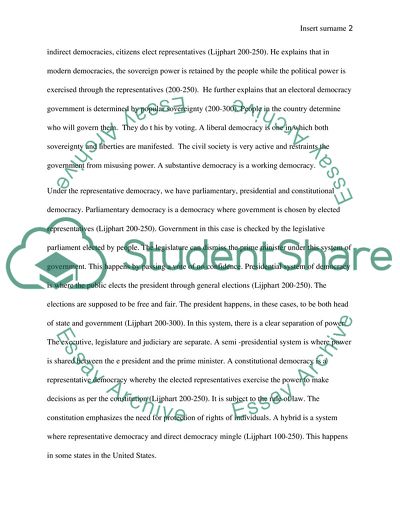Cite this document
(Democracy and What It Is Essay Example | Topics and Well Written Essays - 1500 words, n.d.)
Democracy and What It Is Essay Example | Topics and Well Written Essays - 1500 words. https://studentshare.org/politics/1780618-think-piece-essay
Democracy and What It Is Essay Example | Topics and Well Written Essays - 1500 words. https://studentshare.org/politics/1780618-think-piece-essay
(Democracy and What It Is Essay Example | Topics and Well Written Essays - 1500 Words)
Democracy and What It Is Essay Example | Topics and Well Written Essays - 1500 Words. https://studentshare.org/politics/1780618-think-piece-essay.
Democracy and What It Is Essay Example | Topics and Well Written Essays - 1500 Words. https://studentshare.org/politics/1780618-think-piece-essay.
“Democracy and What It Is Essay Example | Topics and Well Written Essays - 1500 Words”. https://studentshare.org/politics/1780618-think-piece-essay.


